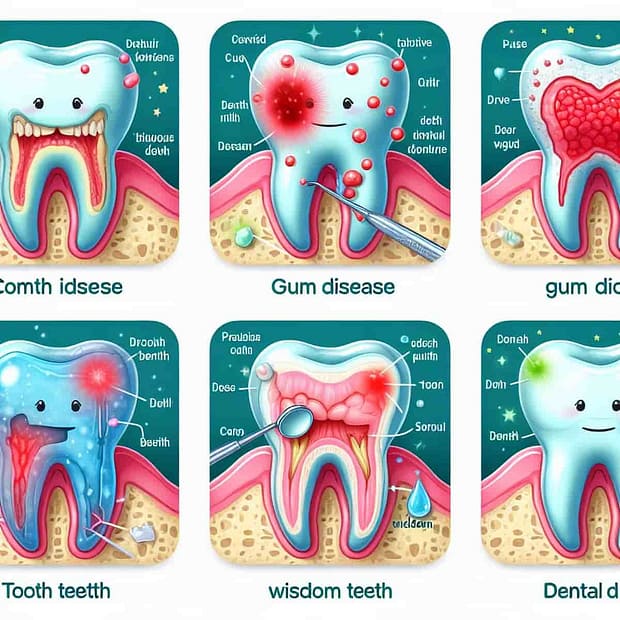Dry mouth, medically known as xerostomia, is a common condition characterized by a decrease in saliva production, which can lead to discomfort and potential oral health complications. Understanding the causes, recognizing the symptoms, and exploring management strategies are essential for addressing dry mouth effectively. Let’s explore the details:
Key Takeaways:
- Dry mouth can result from various factors, including medications, medical conditions, lifestyle habits, and aging.
- Symptoms of dry mouth may include a dry or sticky feeling in the mouth, frequent thirst, difficulty swallowing, bad breath, and oral infections.
- Management of dry mouth involves lifestyle modifications, hydration, saliva substitutes, oral hygiene measures, and medical interventions to address underlying causes.
Causes of Dry Mouth:
Dry mouth can be caused by multiple factors, including:
- Medications: Many prescription and over-the-counter medications, including antihistamines, antidepressants, diuretics, and medications for high blood pressure, can reduce saliva production as a side effect.
- Medical Conditions: Systemic conditions such as Sjögren’s syndrome, diabetes, autoimmune disorders, HIV/AIDS, and Parkinson’s disease can contribute to dry mouth.
- Radiation Therapy: Head and neck radiation therapy for cancer treatment can damage salivary glands and impair saliva production.
- Lifestyle Factors: Habits such as smoking or chewing tobacco can exacerbate dry mouth symptoms, as can breathing through the mouth due to nasal congestion or obstruction.
- Aging: Salivary gland function tends to decline with age, leading to increased prevalence of dry mouth in older adults.
Symptoms of Dry Mouth:
Dry mouth can manifest with various symptoms, including:
- Dryness or Stickiness: Feeling of dryness or stickiness in the mouth, throat, or lips, particularly upon waking or throughout the day.
- Thirst: Persistent thirst or the need to drink fluids frequently to alleviate dry mouth sensations.
- Difficulty Swallowing: Dry mouth can make swallowing food or liquids uncomfortable or difficult, leading to dysphagia.
- Bad Breath: Reduced saliva flow can contribute to bacterial overgrowth in the mouth, leading to halitosis (bad breath).
- Sore Throat: Dryness and irritation in the throat can lead to a persistent sore throat or hoarseness.
- Oral Infections: Decreased saliva production can increase the risk of oral infections, including thrush (oral candidiasis) and periodontal disease.
Management of Dry Mouth:
Managing dry mouth involves addressing underlying causes and implementing strategies to alleviate symptoms and promote oral comfort:
- Stay Hydrated: Drink plenty of water throughout the day to help moisten the mouth and maintain hydration.
- Saliva Substitutes: Use over-the-counter saliva substitutes, mouth rinses, or sprays to provide temporary relief and lubrication for dry mouth symptoms.
- Chew Sugar-Free Gum: Chewing sugar-free gum or sucking on sugar-free candies can stimulate saliva production and alleviate dry mouth sensations.
- Avoid Irritants: Limit consumption of caffeine, alcohol, and tobacco, as well as acidic or spicy foods that can exacerbate dry mouth symptoms.
- Humidify the Air: Use a humidifier in your home, particularly in bedrooms, to add moisture to the air and alleviate dry mouth symptoms during sleep.
- Optimize Oral Hygiene: Practice good oral hygiene habits, including regular brushing, flossing, and rinsing with alcohol-free mouthwash to maintain oral health and reduce the risk of oral infections.
- Consult Healthcare Provider: If dry mouth is severe or persistent, consult your healthcare provider or dentist to identify underlying causes and explore potential medical interventions or adjustments to medications.
Prevention of Dry Mouth:
Preventing dry mouth involves minimizing risk factors and adopting healthy lifestyle habits:
- Review Medications: Consult your healthcare provider to review medications and discuss potential alternatives or adjustments to minimize dry mouth side effects.
- Stay Hydrated: Drink water regularly throughout the day and avoid excessive consumption of dehydrating beverages such as alcohol or caffeinated drinks.
- Quit Smoking: If you smoke or use tobacco products, consider quitting to improve oral health and reduce dry mouth symptoms.
- Maintain Oral Health: Brush teeth twice daily with fluoride toothpaste, floss daily, and visit your dentist regularly for preventive dental care to minimize the risk of oral complications associated with dry mouth.
In conclusion, dry mouth can be a bothersome condition with potential implications for oral health and overall well-being. By understanding the causes, recognizing symptoms, and implementing effective management strategies, individuals can alleviate discomfort, reduce the risk of oral complications, and improve quality of life. If you experience persistent dry mouth symptoms, consult your healthcare provider or dentist for evaluation and personalized recommendations tailored to your needs. With proper management and preventive measures, dry mouth can be effectively managed, allowing for greater oral comfort and overall health.











